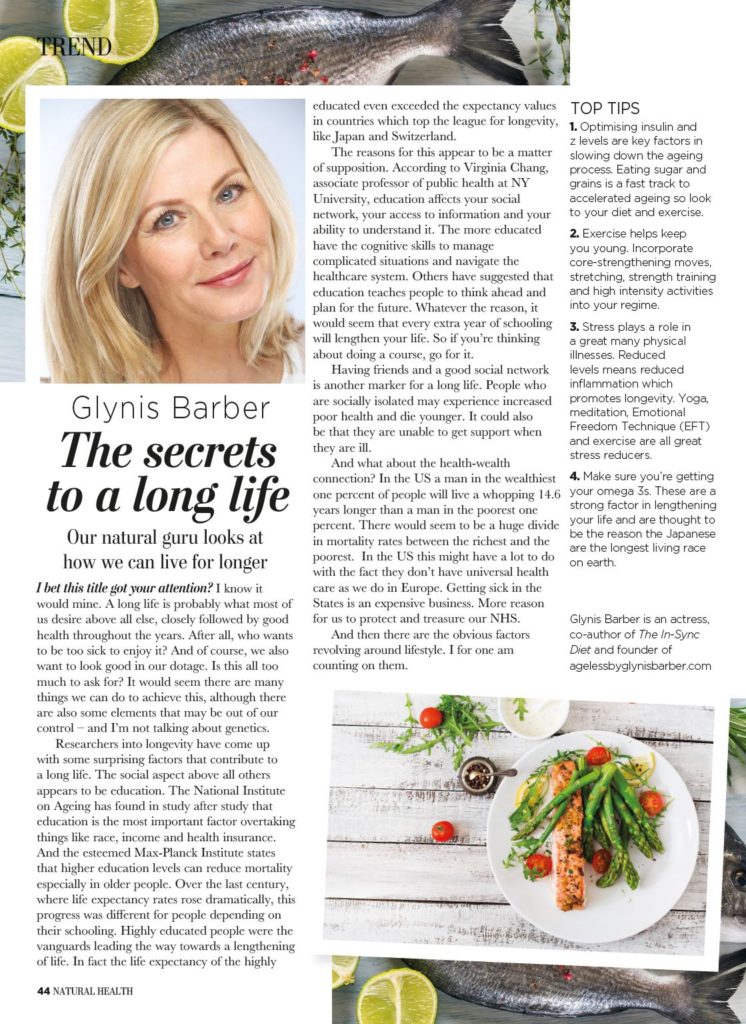I bet this title got your attention? I know it would mine. A long life is probably what most of us desire above all else, closely followed by good health throughout the years. After all, who wants to be too sick to enjoy it? And of course, we also want to look good in our dotage. Is this all too much to ask for? It would seem there are many things we can do to achieve this, although there are also some elements that may be out of our control – and I’m not talking about genetics. Here’s my article on the subject as written for Natural Health magazine.
Researchers into longevity have come up with some surprising factors that contribute to a long life.
The social aspect above all others appears to be education. The National Institute on Ageing has found in study after study that education is the most important factor overtaking things like race, income and health insurance.
And the esteemed Max-Planck Institute states that higher education levels can reduce mortality especially in older people. Over the last century, where life expectancy rates rose dramatically, this progress was different for people depending on their schooling.
Highly educated people were the vanguards leading the way towards a lengthening of life.
In fact the life expectancy of the highly educated even exceeded the expectancy values in countries which top the league for longevity, like Japan and Switzerland.
The reasons for this appear to be a matter of supposition. According to Virginia Chang, associate professor of public health at NY University, education affects your social network, your access to information and your ability to understand it. The more educated have the cognitive skills to manage complicated situations and navigate the healthcare system. Others have suggested that education teaches people to think ahead and plan for the future. Whatever the reason, it would seem that every extra year of schooling will lengthen your life. So if you’re thinking about doing a course, go for it.
Having friends and a good social network is another marker for a long life.
People who are socially isolated may experience increased poor health and die younger. It could also be that they are unable to get support when they are ill.
And what about the health-wealth connection? In the US a man in the wealthiest one percent of people will live a whopping 14.6 years longer than a man in the poorest one percent. There would seem to be a huge divide in mortality rates between the richest and the poorest. In the US this might have a lot to do with the fact they don’t have universal health care as we do in Europe. Getting sick in the States is an expensive business. More reason for us to protect and treasure our NHS.
And then there are the obvious factors revolving around lifestyle. I for one am counting on them.
Top tips:
- Optimising insulin and leptin levels are key factors in slowing down the ageing process. Eating sugar and grains is a fast track to accelerated ageing so look to your diet and exercise.
- Exercise helps keep you young. Incorporate core-strengthening moves, stretching, strength training and high intensity activities into your regime.
- Stress plays a role in a great many physical illnesses. Reduced levels means reduced inflammation which promotes longevity. Yoga, meditation, Emotional Freedom Technique (EFT) and exercise are all great stress reducers.
- Make sure you’re getting your omega 3’s. These are a strong factor in lengthening your life and are thought to be the reason the Japanese are the longest living race on earth.

